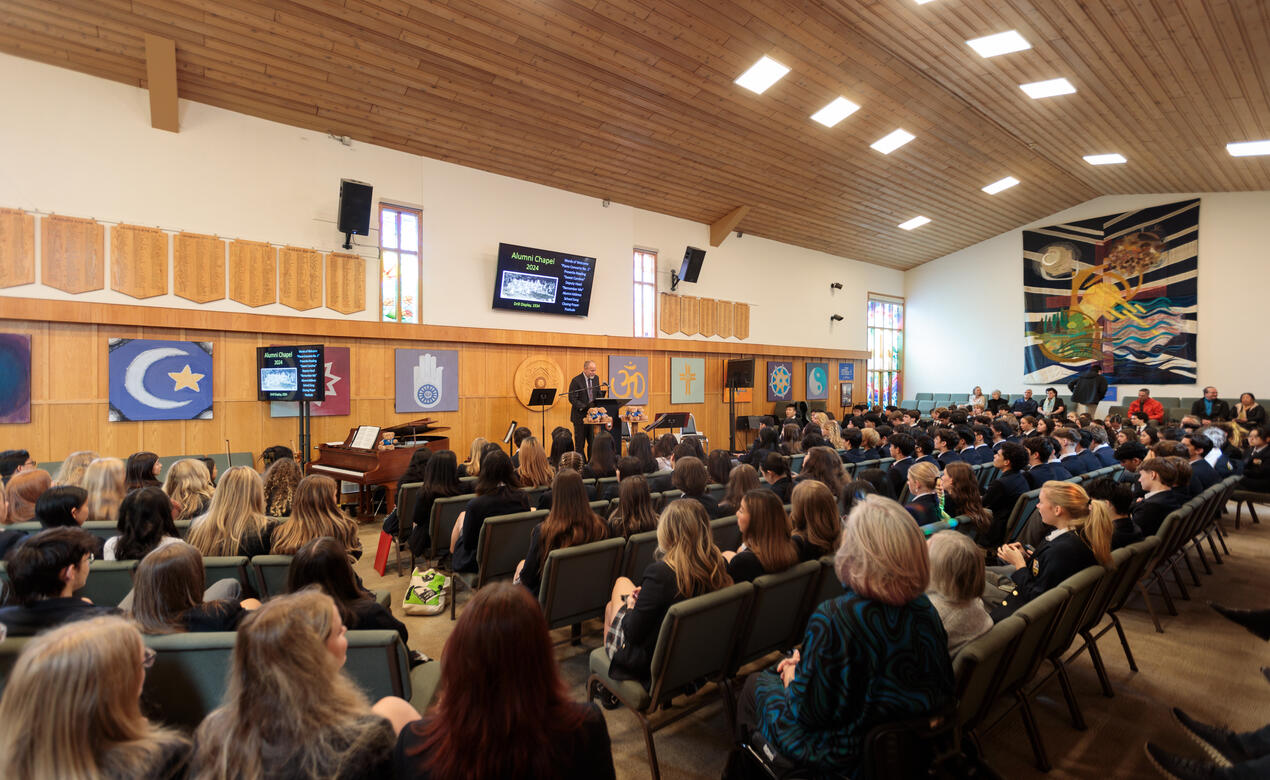
At SMUS, a hundred years ago, Chapel reflected the students who attended. They were almost exclusively Christian and most of them would have been raised in the Anglican tradition. When they walked into the building and sat in a pew, they were home. Perhaps bored, but home.
In their world, Chapel was a common thread with a recognizable rhythm. Familiar stories were read from a book that had been part of their lives from infancy. They might have had to check the lyrics of some hymns, but probably didn’t when it came to any chorus. The words of the Lord's Prayer would have flowed effortlessly from their lips with or without thought, depending on their mood in the moment. All messages about how we should live would wind their way back to an easily recognizable gospel. The basic concept that there was a God and that Jesus was his son would have been generally accepted. Even if some quietly doubted, they sat in their pew knowing that their greater society and its institutions reflected this worldview.
Note also what Chapel was not a hundred years ago. It was not a place that felt unfamiliar or strange and it was not a place where many or most of the students were asked to accept as valuable something in which they didn’t believe. Instead, it was a place where students and teachers could gather as a community around familiar words and music tied to beliefs they held in common. Chapel affirmed shared values and engendered a sense of belonging.
Today at SMUS, we’re striving to recapture this feeling of Chapel as home. We have shifted our practice so that Chapel reflects the students of our time, mostly unattached from any tradition, with a minority connected to a variety of faith systems. For us, the purpose of Chapel does not center on asserting a specific belief system that is not shared. Rather, it centers on reaffirming our community’s core values (service, honesty, respect, courage) and fostering a sense of belonging to create an environment akin to what students experienced a century ago.
In our gatherings, we raise questions connected to who we are and who we might become, both as individuals and as a community. We share words of wisdom from a diverse array of thinkers on how we might frame and understand our lives. At the Junior and Middle Schools, we regularly sing together, experiencing the sense of unity that music can create. By the time students arrive at Senior School, they find that more than half of the gatherings are completely student-led, allowing them and their peers to share their experiences and worldviews. Again, all of this ties back to those deeper questions about who we are and how we live together.
This approach falls in line with our Vision, Mission, and Values Statements, which speak of truth, compassion, and courage, but not of religion and certainly not of a specific religious tradition.
In recent years, our program has evolved to better fulfill its traditional purpose as a place of shared experience where we consider the big questions of life in the context of common values. At the end of the day, our hope is to create a space that reflects our students and their world - Chapel as home.
This article was adapted from Keven’s recently published book, No Longer the Same: Chapel and Chaplaincy in Independent Schools, published by CSEE. If you’d like to borrow a copy, feel free to reach out to him.



